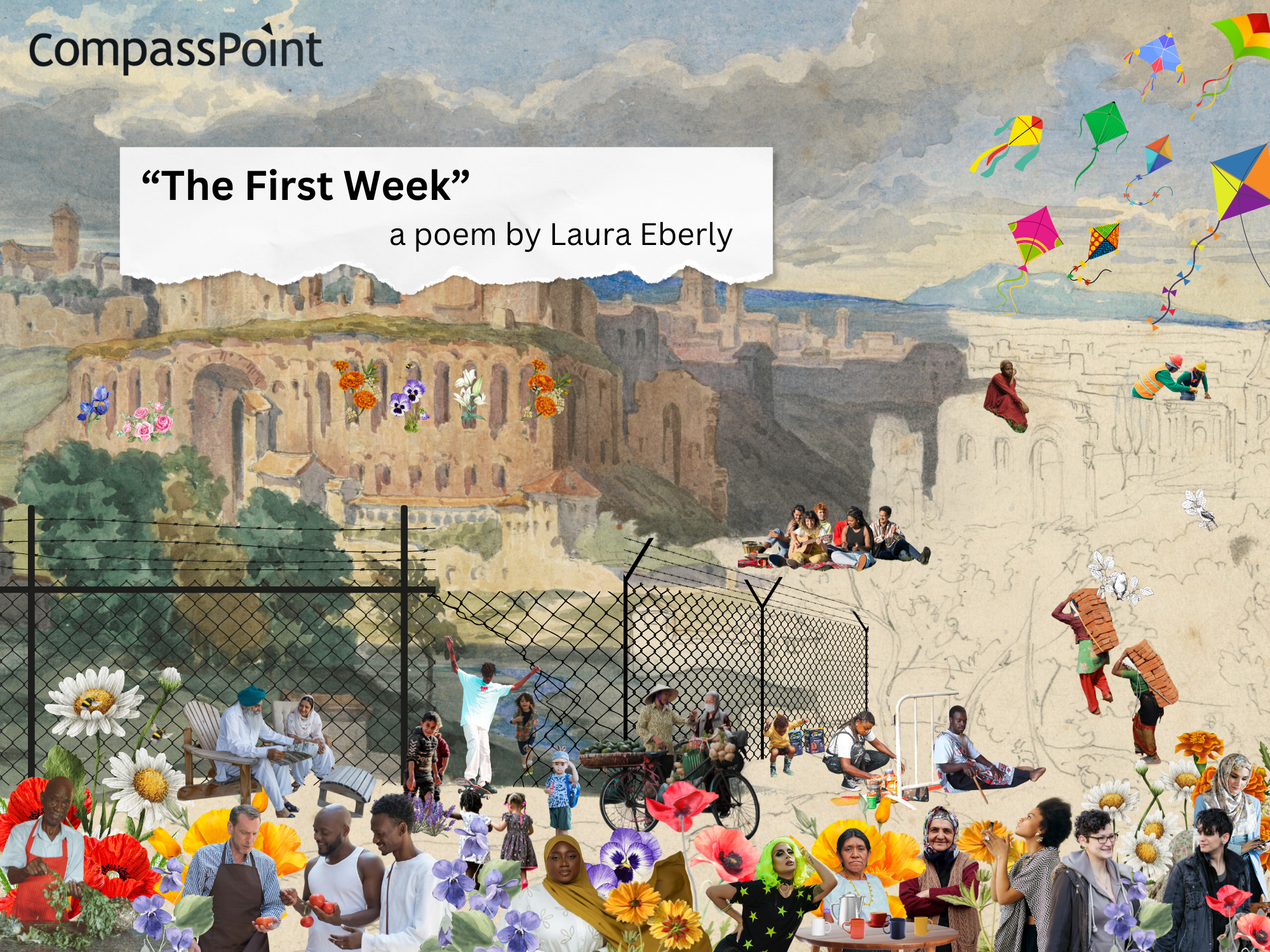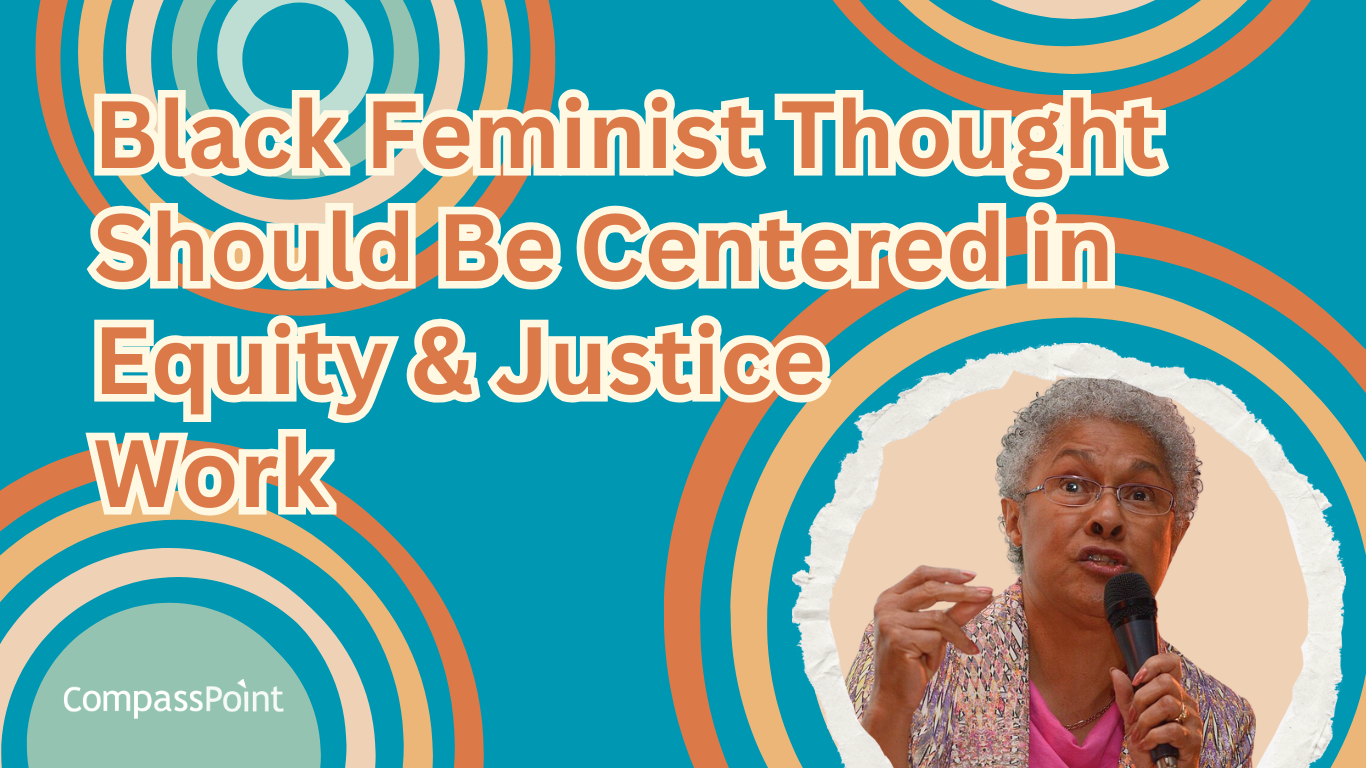CompassPoint is a lab for new ideas, and we're always looking to feed our own thinking. We're a team of avid learners, so it's no surprise that in our search for the best leadership approaches to move us all closer to social equity, many of us have also become bookworms.
Ah, summer time. A chance to get outdoors, unwind, and catch up on some non-required reading. Diving into a few guilty pleasures is most definitely in order, but summer reading can also be a chance to fuel thinking, spark your curiosity about new ideas, and maybe even shift your approach to work. That's why we've collected a handy list of staff picks to help you curate your own summer reading list, featuring thoughts on the power of introverts, what we can learn from the motivations of zombies, strategies for working in teams, and more.
Here's a peek at what's occupying the bookshelves of CompassPoint staff this summer:
Lupe Poblano (Project Director) recommends:
Group Dynamics for Teams by Daniel Levi
Within the nonprofit sector, so much of organizational success depends on the success of the small teams that comprise organizations—whether they are departments, boards of directors, or teams that come together for a specific purpose (e.g., event planning committees). In this book, Levi breaks down why teams work (or why they don’t). Levi discusses many of the challenges that teams face: groupthink, poor communication, lack of stability in group membership, relationship conflict, and even lack of motivation by team members (a phenomenon Levi describes as “social loafing”). The book is a little academic at times, but it is definitely a great resource for anyone who is either thrilled or frustrated by how teams function within their organization.
Cristina Chan (Grants and Communications Director) recommends:
Quiet by Susan Cain
I loved this book about introverts—especially because I am one. Lots of interesting stories, research, some useful strategies, and validation to “own” your introversion—sometimes a hard thing to do in a culture that values extroversion.
Beautiful Boy by David Sheff
and Tweak and We All Fall Down by Nic Sheff.
I couldn’t put down these autobiographies, but they’re definitely not light summer reading. David Sheff’s book is his account of what it's like to be a parent of a drug addict—the constant jumble of fears, hopes, guilt, disappointments, wins, and unpredictability, and what’s on the other end. Nic Sheff’s books are his account of what it's like to be an active addict and a recovering addict. I read these three books in quick succession last summer, and they’re still hanging around in my thoughts and as I encounter locations from the books (the Sheffs are from the Bay Area). The books give another window into the work of many of our clients and greater empathy for those struggling with addiction and mental health.
Maro Guevara (Project Coordinator) recommends:
Who Owns the Future? by Jaron Lanier
This is a book packed with ideas about what it means to be a human living in a digital economy. A radical dude who is also one of the forefathers of virtual reality, Lanier lays out the perils of our current digital economy, painting a stark picture of mega-spy-servers that infringe on the privacy of citizens and concentrate wealth in the hands of a select few. What would it mean to conceive of an Internet economy that’s humanistic and values the people that participate in it? This is an urgent call-to-action for building a tech-driven economy that grows opportunities for everyone and prioritizes people. Even if the proposed solutions are (by the author’s own admission) outlandish at times, they’re guaranteed to make you think twice about what a more equitable digital economy could look like!
Marissa Tirona (Senior Project Director) recommends:
Capital by Thomas Piketty
There’s lots of buzz about it being a “must read” for anyone interested in understanding why we are experiencing catastrophic wealth inequity today. I fell asleep twice reading the introduction, but I’m sticking with it, because I feel like my brain is growing by the second.
[Ed. Note: For a shorter, less snooze-inducing version, check out a handy primer from Vox here.]
Mindset by Carol Dweck
I originally read this through a parenting lens, because I already knew about Dweck’s central premise—teaching a growth mindset creates motivation and productivity in young people. The frameworks, however, also apply to our work with leaders. It’s relevant not only to my coaching practice, but also in working with organizational clients who are struggling with change, transition, and decision making. It’s a complementary framework for our strengths-based approach to leadership.
Nelson Layag (Training Director) recommends:
Switch: How to Change Things When Change is Hard by Chip and Dan Heath
Let’s face it, everyone faces the challenge of change at work and life. The book has some great practical ideas that you can put into place right away and it is also entertaining. There are a lot of social sector examples (of course, we’re in the change business) so most of us can relate. It also touches on the different levels of leadership—leading self; leading with others; leading teams and organizations; and leading communities and movements.
World War Z by Max Books
Okay, I’m a sucker for any zombie apocalypse book. I love that it’s written as small vignettes giving us different viewpoints of the apocalypse. Let’s see—what can we learn from zombies about strategy? Well, they are the epitome of living the “hedgehog concept” explained in Jim Collin’s Good to Great:
- What can you be the best in the world at? Eating people and making more zombies.
- What drives your economic engine? Eating people and making more zombies.
- What you are deeply passionate about? Eating people and making more zombies.
Amy Benson (Project Coordinator) recommends :
The God of Small Things by Arundhati Roy
This book is so beautifully written that you could open it up to any page and read it out aloud as poetry. It’s also an amazing story. Beautifully written and very, very sad—the book starts you off with a feeling of “uh oh, trouble is brewing” and things get progressively worse from there. It takes place in Kerala, India, and alternates between 1969 and 1993. Touching on themes of love, family, caste, obligations, and fate, the story focuses on two young twins and follows them through adulthood as they learn about the world and its rules. This book will probably make you cry, but it will also make you laugh at certain points and it’s totally worth the emotional experience.
Geek Love by Katherine Dunn
This is a beautiful fiction book about insider/outsider status, and how these labels are relative and constantly shifting. Focusing on a travelling circus “freak show” from the past, and one member of the travelling circus and her daughter from the present, the characters struggle for power and to define what is “normal”.
Michelle Gislason (Senior Project Director) recommends:
Black Girl Dangerous On Race, Queerness, Class and Gender by Mia McKenzie
This is a collection of works by BGD creator Mia McKenzie. It is awesome. Mia’s voice is authentic, funny, direct, vulnerable, gutsy, and provocative—all things I admire in social justice leaders. In her own words, she speaks loudly about oppression, without apology and without fear. I especially enjoy her pieces on how to be (and not to be) a white ally. I would highly recommend this book for anyone interested in learning more about racism, oppression, white privilege, or cultural humility.
We also recommend...
Enrique's Journey by Sonia Nazario
Here's a great read that sheds a human light on the ongoing immigration crisis, written by the keynote speaker of this fall's StrongerTogether conference, Sonia Nazario. From the book's website: "Based on the Los Angeles Times newspaper series that won two Pulitzer Prizes, this astonishing story puts a human face on the ongoing debate about immigration reform in the United States. Now a beloved classic, this page-turner about the power of family is a popular text in classrooms and a touchstone for communities across the country to engage in meaningful discussions about this essential American subject." Read more about the book here.
Looking for more great recommendations? Here are some past selections from the CompassPoint book club to keep your reading going well past the summer season:
The Summer We Got Free by Mia McKenzie
David and Goliath by Malcolm Gladwell
Post Traumatic Slave Syndrome by Joy Degruy
What's on your reading list? Add your suggestions in the comment section below.





Submit a comment